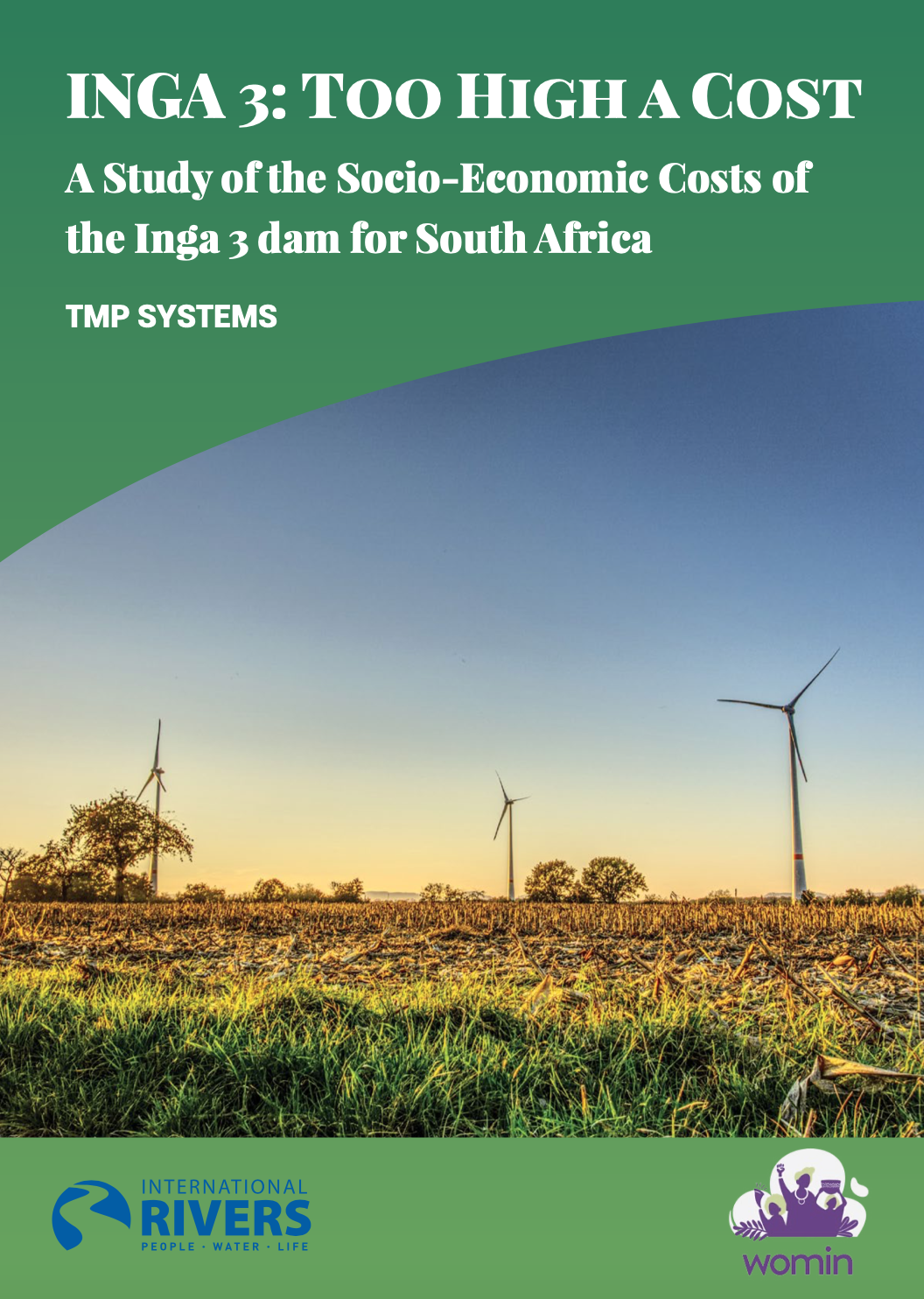Today, International Rivers and WoMin African Alliance published a new report, INGA 3: Too High a Cost – A study of the Socio-Economic Costs of the Inga 3 Dam for South Africa. The study, conducted by financial experts from UK-based TMP Systems, provides the first authoritative accounting of the true costs to South Africa of importing power from the planned Inga 3 hydropower scheme in the Democratic Republic of Congo (DRC).
Its findings are dire yet clear: Offtaking hydropower from Inga 3 would be too costly, and an unmitigated disaster for South Africa. The study shows that the cost of importing power from Inga would be three times the current cost of generating electricity in South Africa, and would cost South Africa over R10 billion more per year compared to readily available alternatives. This additional burden would likely fall on the shoulders of ordinary South Africans through increased tariffs and taxpayer subsidies for Eskom.
“Our study clearly shows that Inga is simply not financially viable for South Africa,” says Ben Bowie, one of the study’s authors. “The economics of the project just don’t add up, so it’s no wonder financiers have stayed away.”
The study raises considerable doubt over whether South Africa’s plans to import power from Inga are likely to proceed, and notes that the South African government has not conducted proper due diligence, including feasibility and socio-economic impact studies.
Meanwhile, the scheme’s prospects worsened in recent weeks following news that the DRC government has granted exclusive rights to develop the Inga site to Australian company Fortescue Metals Group, which plans to harness Inga’s hydro potential to produce green hydrogen for export to Europe. This would potentially cut South Africa out altogether, despite a longstanding treaty guaranteeing a portion of Inga’s power to South Africa.
“This should be a clear wake up call for South African authorities to abandon their ill-advised plans to import power from Inga,” says Siziwe Mota, Africa Director at International Rivers. “South Africa must withdraw from the treaty and embrace abundant local solar and wind resources to the benefit of all South Africans.” The study found that Inga would create virtually no new jobs within South Africa compared to the estimated 8,096 full-time jobs for South Africans that comparable investments in solar and wind would create.
The report further found that women in particular would bear the cost of importing power from Inga, both through direct impacts of the transmission line and increased electricity tariffs. “With women already disproportionately affected by the high unemployment rate as well as the gender pay gap, further tariff increases and displacement to make way for the transmission lines will have devastating effects on the lives of poor women in particular. These already vulnerable women would once again be forced to carry the burden of these so-called development schemes,” says Trusha Reddy, Programme Head at WoMin African Alliance.
The report also warns that the considerable doubts over Inga threaten South Africa’s future energy security if authorities do not act swiftly to identify and invest in realistic and cost-effective energy solutions.
“South Africa simply cannot afford a ticking time-bomb of this magnitude,” emphasizes Ms. Mota. “Our country urgently needs energy, which solar and wind can provide more quickly, more cheaply, and at significantly lower risk.”
International Rivers and WoMin have therefore written to the Parliamentary Portfolio committees on Energy and Finance to request an opportunity to present this report to the Members of Parliament calling for the immediate withdrawal of South Africa’s support for Inga 3.
Read the full report here

